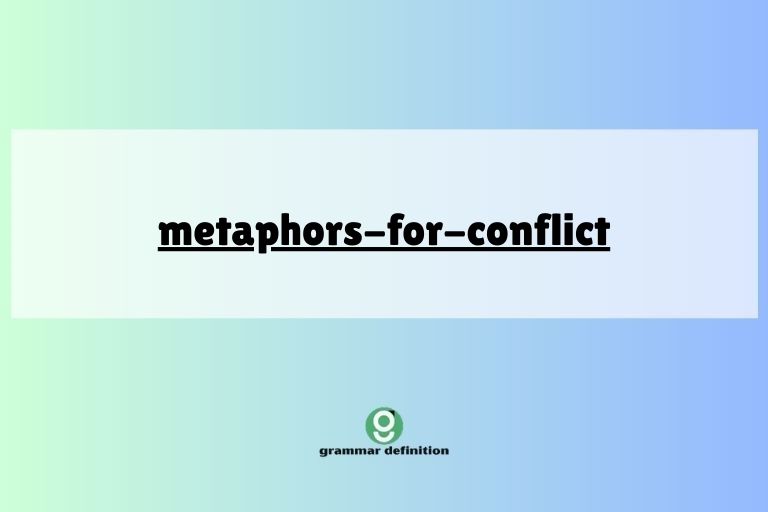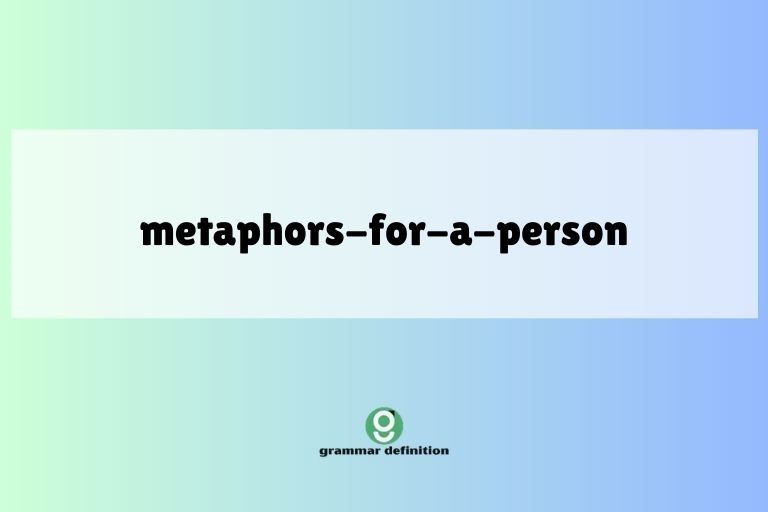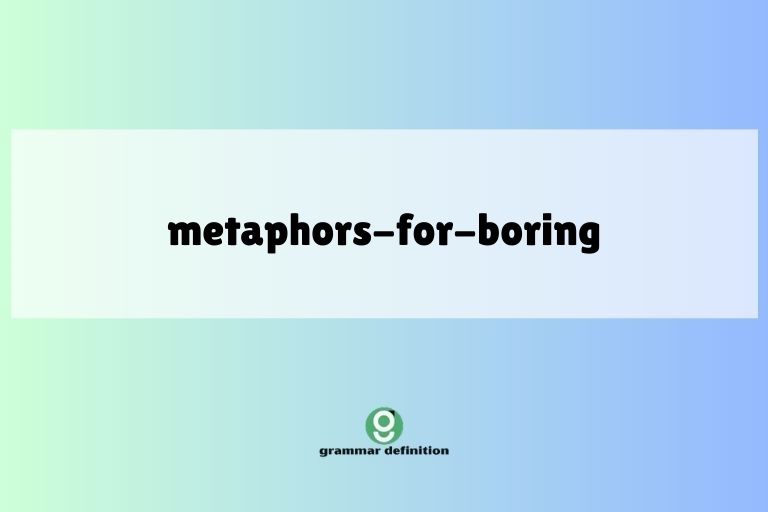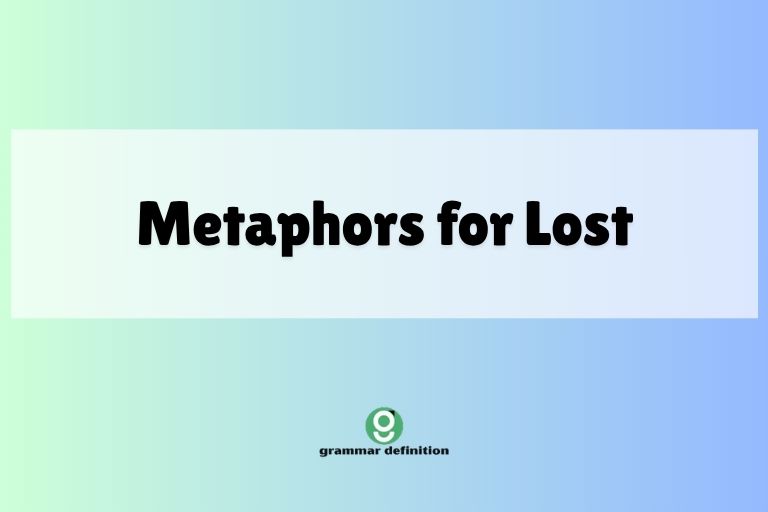Figurative Length: Mastering Metaphors for ‘Long’ in English
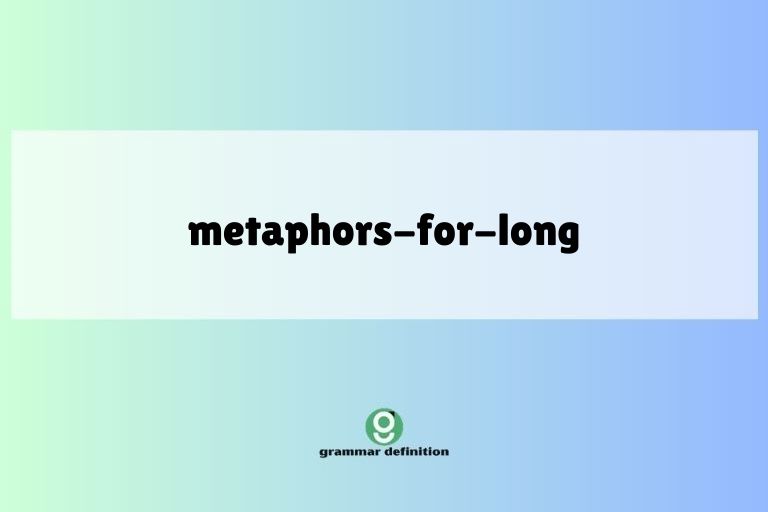
Metaphors enrich our language, adding depth and color to our expressions. When describing something that is “long,” we often move beyond simple measurements and employ metaphors to convey the extent, duration, or impact of the length.
Understanding these metaphors not only enhances comprehension but also allows for more vivid and engaging communication. This article explores various metaphors for “long,” their meanings, and how to use them effectively.
This guide is perfect for English language learners, writers, and anyone looking to expand their expressive abilities.
This comprehensive guide provides definitions, examples, and practice exercises to help you master the art of using metaphors for “long.” Whether you’re describing a drawn-out process, an extensive distance, or a prolonged period of time, this article will equip you with the tools to express yourself with precision and creativity.
Table of Contents
- Introduction
- Definition: Metaphors for “Long”
- Structural Breakdown of Metaphorical Length
- Types and Categories of Metaphors for “Long”
- Examples of Metaphors for “Long”
- Usage Rules for Metaphors of Length
- Common Mistakes When Using Metaphors for “Long”
- Practice Exercises
- Advanced Topics: Nuances and Subtleties
- Frequently Asked Questions
- Conclusion
Definition: Metaphors for “Long”
A metaphor is a figure of speech in which a word or phrase is applied to an object or action to which it is not literally applicable. It’s a way of describing something by comparing it to something else, creating a vivid image or understanding.
When we talk about “long,” whether it’s time, distance, or a process, metaphors help us express the idea of length in a more nuanced and impactful way.
In the context of “long,” metaphors often function by drawing parallels to things that are inherently extended, continuous, or seemingly never-ending. For example, a “long road” might be used metaphorically to describe a difficult journey, implying that it is not only physically long but also emotionally or mentally challenging.
These metaphors can add depth and richness to our communication, making it more engaging and memorable.
The primary function of these metaphors is to move beyond literal descriptions and invoke a sense of feeling or understanding that a simple statement of length cannot. They allow us to communicate the subjective experience of “long” rather than just the objective measurement.
Structural Breakdown of Metaphorical Length
Understanding the structure of metaphors for “long” involves recognizing the core elements at play: the tenor, the vehicle, and the ground. The tenor is the subject being described (e.g., the duration of a meeting). The vehicle is the object or concept used metaphorically (e.g., a marathon). The ground is the shared characteristic or similarity between the tenor and the vehicle (e.g., endurance and perseverance).
For instance, in the metaphor “the meeting was a marathon,” the tenor is the meeting, the vehicle is the marathon, and the ground is the shared characteristic of being long and requiring endurance. By understanding these elements, we can dissect and appreciate the effectiveness of different metaphors.
The power of the metaphor lies in the implicit comparison. It doesn’t explicitly state that the meeting was long; it implies it by associating it with a marathon.
This implicit comparison allows the listener or reader to draw their own conclusions and create a more vivid mental image.
Types and Categories of Metaphors for “Long”
Metaphors for “long” can be categorized based on what aspect of “long” they emphasize. Here are some key categories:
Metaphors for Time and Duration
These metaphors focus on the length of time something takes or lasts. They often involve comparisons to things that are known for their extended duration, such as historical periods, natural processes, or repetitive tasks.
Metaphors for Distance and Extent
These metaphors relate to physical length or the extent of something. They often involve comparisons to geographical features, journeys, or measurements that convey a sense of vastness or considerable size.
Metaphors for Process and Complexity
These metaphors describe processes or tasks that are lengthy and involved. They often draw parallels to mazes, tangled webs, or intricate systems that require significant time and effort to navigate.
Metaphors for Emotional Impact
These metaphors convey the lingering or prolonged emotional effects of something. They might compare emotional experiences to shadows, scars, or echoes that persist over time.
Examples of Metaphors for “Long”
Here are some detailed examples of metaphors for “long,” categorized by type:
Examples for Time and Duration
The following table illustrates metaphors used to describe the length of time.
| Metaphor | Meaning | Example Sentence |
|---|---|---|
| An eternity | A seemingly endless amount of time. | Waiting for the exam results felt like an eternity. |
| A geological age | An extremely long period, like the age of the Earth. | It took a geological age to get through all the paperwork. |
| A lifetime | A very long time, often referring to someone’s entire life. | It felt like a lifetime before the project was finally finished. |
| A month of Sundays | A very long time, often implying impossibility. | It would take a month of Sundays to clean this entire house. |
| A dog’s age | A long time (playful). | I haven’t seen him in a dog’s age. |
| A drawn-out affair | A process or event that takes much longer than expected. | The legal battle became a drawn-out affair, lasting several years. |
| A never-ending story | A situation that seems to have no resolution or end. | Their argument was a never-ending story, repeating the same points over and over. |
| A prolonged wait | A wait that lasts longer than desired or anticipated. | The prolonged wait for the train made everyone anxious. |
| A years-long process | A process that spans multiple years. | Getting the necessary approvals was a years-long process. |
| A seemingly endless task | A task that appears to have no end in sight. | Cleaning the attic was a seemingly endless task. |
| A glacial pace | Extremely slow progress. | The project was moving at a glacial pace. |
| An endless loop | Something repetitive and without end. | The conversation felt like an endless loop. |
| A protracted debate | A debate that lasts a very long time. | The issue led to a protracted debate in parliament. |
| An age | A very long time. | I’ve been waiting for you for an age. |
| Running a marathon | Enduring a long and difficult task. | Getting through the training felt like running a marathon. |
| A slow burn | Something that develops gradually over a long period. | Their relationship was a slow burn. |
| A long haul | A journey or task that requires sustained effort over time. | This project is going to be a long haul. |
| A prolonged period | An extended duration of time. | The company experienced a prolonged period of growth. |
| A lengthy process | A process that takes a considerable amount of time. | The application process was quite lengthy. |
| An extended stay | A stay that lasts longer than originally planned. | Due to the weather, we had an extended stay at the hotel. |
| A drawn out process | A process that takes longer than it should. | The contract negotiations became a drawn out process. |
| A never ending day | A day that feels like it will never end. | Dealing with the crisis felt like a never ending day. |
| Time stood still | Time felt like it stopped. | During the emotional moment, time stood still. |
| Dragging on | Continuing for too long. | The meeting was dragging on and on. |
| Lasting forever | Seeming to have no end. | The memory of that day will be lasting forever. |
Examples for Distance and Extent
The following table illustrates metaphors used to describe physical distance.
| Metaphor | Meaning | Example Sentence |
|---|---|---|
| An endless road | A road that seems to have no end. | The highway stretched before us like an endless road. |
| A vast expanse | A large, open area. | The desert was a vast expanse of sand and dunes. |
| A long shot | A distant possibility, a low chance of success. | Winning the lottery is a long shot. |
| A great divide | A significant separation or difference. | There is a great divide between the rich and the poor. |
| An insurmountable distance | A distance that cannot be overcome. | The language barrier created an insurmountable distance between them. |
| A long reach | Extensive influence or power. | The company has a long reach in the global market. |
| A far cry | Very different from something. | This product is a far cry from what they promised. |
| A long shadow | An influence or effect that persists for a long time. | The war cast a long shadow over the country. |
| A distant land | A faraway place, often exotic or unfamiliar. | He dreamed of traveling to distant lands. |
| A broad scope | A wide-ranging area or extent. | The project has a broad scope, covering many different areas. |
| A wide berth | A safe distance, often to avoid trouble. | I gave the angry dog a wide berth. |
| A long way to go | Much progress still needed. | We still have a long way to go before we achieve our goals. |
| A considerable distance | A significant amount of space. | They live a considerable distance from the city. |
| A wide gap | A large difference or separation. | There is a wide gap in their understanding of the issue. |
| Across the board | Affecting everything or everyone. | The budget cuts were across the board. |
| A sweeping change | A change that affects many things. | The new law brought about sweeping changes. |
| A far-reaching impact | An impact that affects many people or things. | The decision had a far-reaching impact on the community. |
| Stretching for miles | Extending over a large area. | The forest stretched for miles. |
| A vast network | A large and complex system. | The company has a vast network of distributors. |
| Covering a lot of ground | Dealing with many topics or issues. | The presentation covered a lot of ground. |
| A long way off | Far in the future or distant from achieving something. | The release date is still a long way off. |
| A wide range | A large variety. | The store offers a wide range of products. |
| A broad spectrum | A wide range of different things. | The survey covered a broad spectrum of opinions. |
| Spanning generations | Extending over many generations. | The family business has been spanning generations. |
Examples for Process and Complexity
The following table illustrates metaphors used to describe long and complex processes.
| Metaphor | Meaning | Example Sentence |
|---|---|---|
| A tangled web | A complicated and confusing situation. | The scandal uncovered a tangled web of corruption. |
| A long and winding road | A difficult and complicated path to a goal. | Becoming a doctor is a long and winding road. |
| A labyrinthine process | A complicated and confusing process. | Navigating the bureaucracy was a labyrinthine process. |
| An uphill battle | A difficult and challenging struggle. | Fighting for equal rights is an uphill battle. |
| A marathon effort | A sustained and lengthy effort. | Completing the project required a marathon effort. |
| A long shot in the dark | An attempt with little chance of success. | Applying for the grant was a long shot in the dark. |
| A complex tapestry | A complicated and interconnected system. | The economy is a complex tapestry of different factors. |
| A twisted path | A difficult and confusing journey. | His life took a twisted path after the accident. |
| A lengthy investigation | An investigation that takes a considerable amount of time. | The police conducted a lengthy investigation into the crime. |
| A drawn-out negotiation | A negotiation that takes much longer than expected. | The contract negotiations became a drawn-out negotiation. |
| A protracted conflict | A conflict that lasts for a long time. | The political crisis led to a protracted conflict. |
| A slow grind | A process that is slow and requires persistent effort. | Getting the research done was a slow grind. |
| A convoluted process | A process that is unnecessarily complex and difficult. | The application process was convoluted and confusing. |
| A long slog | A difficult and tiring journey or task. | The final push to finish the project was a long slog. |
| A demanding process | A process that requires a lot of effort and time. | The training program was very demanding. |
| A long game | A strategy that requires patience and long-term planning. | Investing in the stock market is a long game. |
| A winding journey | A journey that is not direct and involves many detours. | Life is a winding journey with many unexpected turns. |
| Navigating a minefield | Dealing with a situation full of potential problems. | Talking to him about the issue was like navigating a minefield. |
| A slow burn | A process that develops gradually over a long period. | Building a successful business is often a slow burn. |
| An intricate puzzle | A complex and challenging problem. | Solving the mystery felt like piecing together an intricate puzzle. |
| A lengthy debate | A debate that lasts for a long time. | The proposal led to a lengthy debate in the committee. |
| A protracted battle | A battle that lasts for a long time. | The legal case became a protracted battle. |
| A long road ahead | A significant amount of work or progress still needed. | There is a long road ahead to achieve our goals. |
| An extended period | A period lasting longer than usual. | He had an extended period of recovery after the surgery. |
Examples for Emotional Impact
The following table illustrates metaphors used to describe long-lasting emotional impacts.
| Metaphor | Meaning | Example Sentence |
|---|---|---|
| A long shadow | A lasting negative influence or effect. | The trauma of the accident cast a long shadow over her life. |
| A lasting impression | An effect that stays with someone for a long time. | The concert made a lasting impression on everyone who attended. |
| A deep scar | A lasting emotional wound. | The betrayal left a deep scar on their friendship. |
| A lingering memory | A memory that stays with someone for a long time. | The trip to Italy created lingering memories that she cherished. |
| A long-term effect | An effect that continues for a long time into the future. | The medication has some long-term effects that need to be monitored. |
| A prolonged grief | Grief that lasts for an extended period. | She experienced a prolonged grief after the loss of her mother. |
| A lasting impact | An effect that continues to influence something for a long time. | His work had a lasting impact on the field of medicine. |
| An enduring legacy | A legacy that continues to exist for a long time. | Her contributions left an enduring legacy for future generations. |
| A long-felt sorrow | Sorrow that has been experienced for a long time. | He carried a long-felt sorrow for the loss of his brother. |
| A long held grudge | A feeling of resentment that has been held for a long time. | She couldn’t let go of the long held grudge against her former friend. |
| A protracted sadness | Sadness that lasts for a long time. | The news brought a protracted sadness to the community. |
| A long-standing resentment | Resentment that has existed for a long time. | There was a long-standing resentment between the two families. |
| A deep-seated fear | A fear that is deeply ingrained and has existed for a long time. | He had a deep-seated fear of public speaking. |
| A lasting wound | An emotional or psychological wound that takes a long time to heal. | The harsh criticism left a lasting wound on his confidence. |
| A persistent echo | An emotional effect that continues to resonate over time. | The memory of the event was a persistent echo in her mind. |
| A long-term consequence | A result that continues to affect something for a long time. | The decision had long-term consequences for the company. |
| Carrying a heavy burden | Experiencing a long-lasting emotional weight. | She carried a heavy burden of guilt after the accident. |
| A long-term effect | The impact of something lasting for a considerable amount of time. | The therapy had a positive long-term effect on her mental health. |
| A slow healing | The gradual process of emotional recovery. | It was a slow healing process after the breakup. |
| A protracted recovery | The act of healing that takes a long time. | He had a protracted recovery after the surgery. |
| A long memory | The ability to remember things for a long time. | Elephants are known to have a long memory. |
| A lasting legacy | Something that continues to exist or have influence after a long time. | The scientist left a lasting legacy in the field of genetics. |
| An abiding sorrow | Sorrow that persists over time. | She felt an abiding sorrow after the loss. |
| A long-held belief | A conviction maintained for a significant period. | He had a long-held belief in the power of education. |
Usage Rules for Metaphors of Length
When using metaphors for “long,” it’s important to ensure they are appropriate and effective. Here are some key rules:
- Clarity: The metaphor should be easily understood. Avoid obscure or overly complex comparisons.
- Relevance: The metaphor should be relevant to the context and the subject being described.
- Originality: While common metaphors can be effective, strive for originality to make your writing more engaging.
- Consistency: Avoid mixing metaphors, as this can create confusion.
- Audience Awareness: Consider your audience and choose metaphors that they will understand and appreciate.
It’s also important to consider the connotations of the metaphor. For example, comparing a process to a “marathon” suggests endurance and perseverance, while comparing it to a “tangled web” suggests confusion and difficulty.
Choose the metaphor that best reflects the intended meaning.
Common Mistakes When Using Metaphors for “Long”
One of the most common mistakes is using mixed metaphors. This occurs when two or more inconsistent metaphors are combined, creating a nonsensical image.
For example:
Incorrect: The project was a long and winding road that was also a piece of cake.
This sentence combines the metaphor of a “long and winding road” (suggesting difficulty) with “a piece of cake” (suggesting ease), creating a contradictory and confusing image.
Another common mistake is using clichéd metaphors without adding any original thought. While familiar metaphors can be effective, overusing them can make your writing seem uninspired.
For example:
Weak: The meeting felt like it lasted an eternity.
Improved: The meeting dragged on like an unedited film reel, each minute stretching into an unbearable scene.
The improved sentence provides a more vivid and original comparison, making it more engaging for the reader.
Another mistake is using metaphors that don’t quite fit the context:
Incorrect: The book was a vast ocean of words.
While “vast” relates to size, an “ocean” might be more suitable for describing the depth and complexity of the book’s themes rather than its length. A better metaphor might be: “The book was a long and winding river of narrative.”
Practice Exercises
Test your understanding of metaphors for “long” with these exercises:
Exercise 1: Identifying Metaphors
Identify the metaphors for “long” in the following sentences and explain their meaning:
- The legal battle became a drawn-out affair.
- The desert was a vast expanse under the scorching sun.
- The project turned into a tangled web of complications.
- Grief cast a long shadow over her life after the loss.
- The road to recovery was a long and winding one.
- The negotiation process felt like running a marathon.
- Winning the competition was a long shot.
- The bureaucracy was a labyrinthine process.
- Their relationship was a slow burn.
- The effects of the policy were a long time coming.
Answer Key:
- Drawn-out affair: A process that takes much longer than expected.
- Vast expanse: A large and open area.
- Tangled web: A complicated and confusing situation.
- Long shadow: A lasting negative influence.
- Long and winding: A difficult and complicated path.
- Running a marathon: Enduring a long and difficult task.
- Long shot: A distant possibility, a low chance of success.
- Labyrinthine process: Complicated and confusing.
- Slow burn: Something that develops gradually over a long period.
- A long time coming: Taking a significant amount of time to happen.
Exercise 2: Completing Sentences with Metaphors
Complete the following sentences with appropriate metaphors for “long”:
- Waiting for the train felt like ___________.
- The conference was ___________.
- The impact of the decision was ___________.
- The investigation turned out to be ___________.
- The journey ahead looks like ___________.
- The process of learning a new language is ___________.
- Negotiating the contract was ___________.
- The effects of the trauma were ___________.
- The project became ___________.
- Their argument was ___________.
Possible Answer Key:
- Waiting for the train felt like an eternity.
- The conference was a drawn-out affair.
- The impact of the decision was far-reaching.
- The investigation turned out to be a long and winding road.
- The journey ahead looks like a long haul.
- The process of learning a new language is running a marathon.
- Negotiating the contract was a slow grind.
- The effects of the trauma were a long shadow.
- The project became a tangled web.
- Their argument was an endless loop.
Exercise 3: Using Metaphors in Writing
Write a short paragraph (5-7 sentences) describing a challenging experience using at least three different metaphors for “long.”
Sample Answer:
The project felt like a never-ending story. Each task was a long and winding road, filled with unexpected detours and obstacles.
The approval process alone was a glacial pace, stretching on for what seemed like an eternity. The team’s morale was constantly tested, but we persevered, knowing that the reward would be well worth the effort.
Finally, after months of relentless work, we reached the finish line, exhausted but proud of our accomplishment. The experience left a lasting impression, teaching us the importance of resilience and teamwork.
Advanced Topics: Nuances and Subtleties
At an advanced level, using metaphors effectively involves understanding their cultural context and subtle nuances. Some metaphors may have different meanings or connotations in different cultures.
Additionally, skilled writers can create original and unexpected metaphors that are both effective and memorable.
Exploring the works of great literary figures can provide valuable insights into the art of crafting compelling metaphors. Analyzing how they use language to create vivid images and convey complex ideas can inspire and inform your own writing.
Furthermore, experimenting with different types of figurative language, such as similes and analogies, can broaden your expressive abilities and allow you to choose the most effective tool for each situation. Understanding the subtle differences between these techniques can enhance the precision and impact of your communication.
Frequently Asked Questions
- What is the difference between a metaphor and a simile?
A metaphor directly equates two things (e.g., “the meeting was a marathon”), while a simile uses “like” or “as” to make a comparison (e.g., “the meeting was like a marathon”).
- Why are metaphors important in writing?
Metaphors add depth, vividness, and emotional resonance to writing, making it more engaging and memorable for the reader. They help convey complex ideas in a more accessible way.
- How can I avoid using clichéd metaphors?
Strive for originality by thinking about unique and unexpected comparisons. Consider the specific details of the subject you are describing and look for less common parallels.
- What should I do if I accidentally use a mixed metaphor?
Carefully revise your writing to ensure that your metaphors are consistent and create a coherent image. Choose one dominant metaphor and adjust the surrounding language accordingly.
- Are some metaphors universally understood?
While some metaphors may be widely understood, many are culturally specific. Be mindful of your audience and choose metaphors that are likely to resonate with them.
- How do I know if a metaphor is effective?
An effective metaphor should be clear, relevant, and create a vivid image or understanding in the reader’s mind. It should enhance the meaning of the text and make it more engaging.
- Can a single situation have multiple valid metaphors?
Yes, depending on the aspect you want to emphasize. A long project could be described as “a marathon” (emphasizing endurance) or “a tangled web” (emphasizing complexity), depending on the specific challenges faced.
- How can I improve my ability to create effective metaphors?
Practice writing regularly, read widely, and pay attention to the metaphors used by skilled writers. Experiment with different comparisons and seek feedback on your work.
Conclusion
Mastering metaphors for “long” can significantly enhance your ability to express yourself with clarity, creativity, and impact. By understanding the different types of metaphors, their structural elements, and the rules governing their usage, you can effectively communicate the subjective experience of length, whether it’s time, distance, or a complex process.
Remember to avoid common mistakes, strive for originality, and consider your audience when choosing metaphors.
Continue to practice using metaphors in your writing and speech, and pay attention to the metaphors used by others. With consistent effort, you can develop a rich and expressive vocabulary that will elevate your communication skills and make your writing more engaging and memorable.

